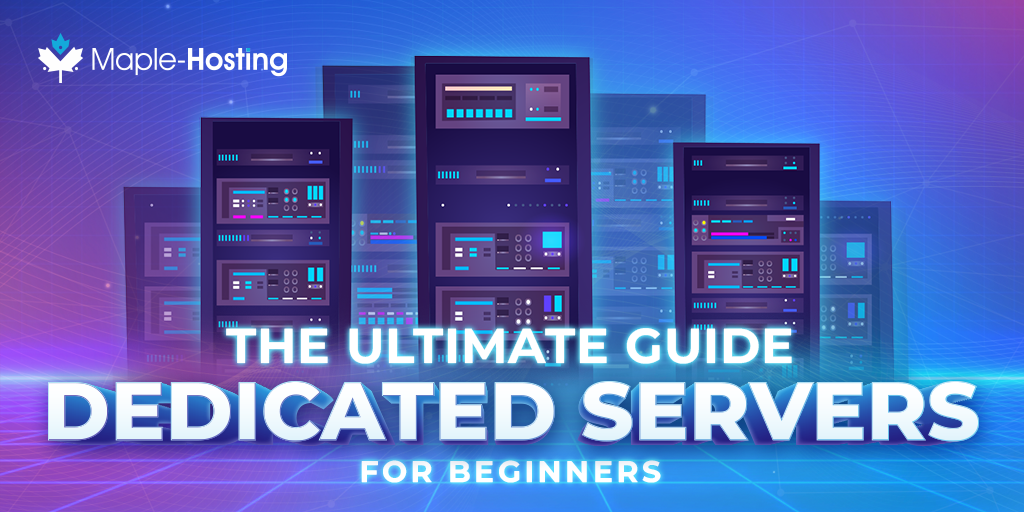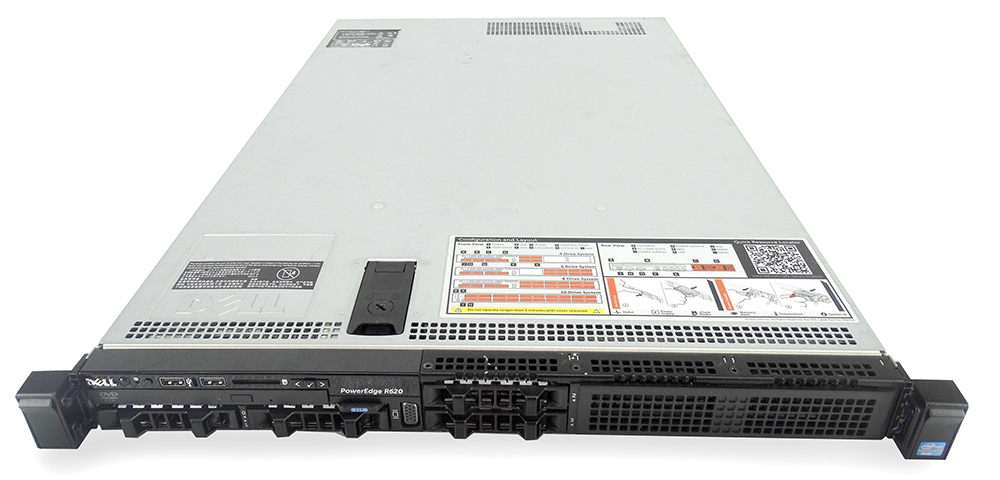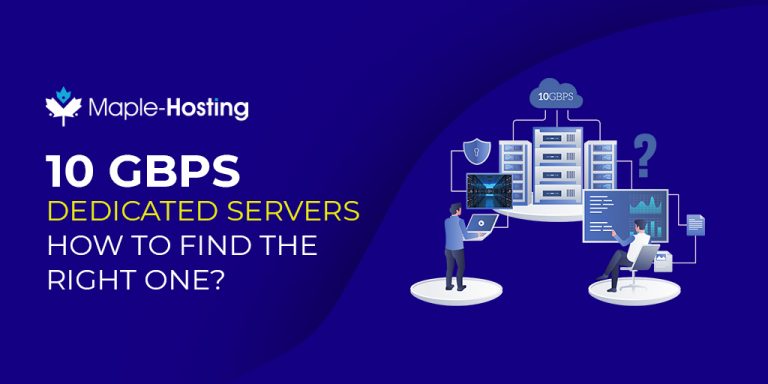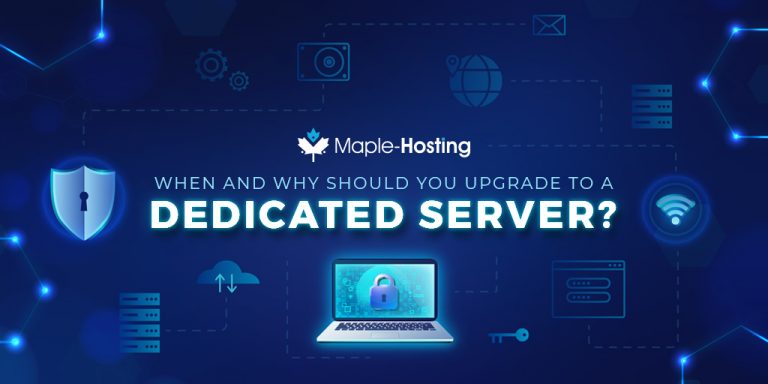
A significant aspect of maintaining a great online presence involves using reliable webmaster services for your needs.
One of these required services is an excellent hosting service that keeps your website online. It’s important to choose a web hosting service you can rely on 24/7 to keep your website up and running even when you’re asleep or otherwise unavailable.
The best type of hosting for the job is a dedicated server. Among other types of web hosting, it carries a lot of advantages that may be new to you as a beginner.
This article explains about dedicated servers for beginners and why you, a beginner in this world, may need them in your field.
What is a Dedicated Server?
A server is a type of computer that provides a service to another computer and its user (also known as the client).
A dedicated server is a remote server that is exclusively yours. Unlike other types of hosting, you do not share the server with other businesses or individuals. You can use all of its resources for yourself and have complete control over them.
Dedicated servers host applications, websites, and deliver other specialized services.
The dedicated server is a physical computer, just like your PC or laptop. Dedicated servers come in different shapes and sizes but the standard size of a regular server is roughly the size and shape of a pizza box.

You can connect to a dedicated server from anywhere in the world, and when you disconnect from the server, it continues to run and do its job even if your computer or phone is no longer connected to it.
That means that even if your personal computer is turned off, the dedicated server continues to run and provide its services to its users.
Who Needs a Dedicated Server?
A dedicated server can be helpful for many different types of customers. Big to small businesses and small enterprises can use dedicated servers for their business needs.
Even individuals can use a dedicated server hosting for their personal blog or to set up their very own game server on a dedicated server.
Medium to large companies
A company that mans over 500 employees or more could use dedicated servers to host extensive databases to store the company’s data.
Inventory, supply chain, and e-commerce transactions need a server that can hold critical data.
They may also use dedicated servers to host their websites, virtual servers, shared files, training materials, and pretty much any kind of data the organization needs.
For medium to large companies, the use cases for dedicated servers are endless.
System administrators and web developers
A dedicated server can help system administrators and developers customize their servers to keep up with resource-intensive web applications.
With a dedicated server, you can make adjustments to all aspects of the server. There are no limits to what you can install or use a server for (other than uses that violate the hosting provider’s terms of service).
You can also take charge of custom software, applications, software service, and e-commerce sites.
This is in contrast to other types of web hosting where you are quite limited with what you are able to adjust or modify on the server. With shared web hosting, for example, you cannot install anything on the server but rather only add your files and databases to be hosted on it.
Agencies and web hosting resellers
If you are an agency or a web hosting reseller, you need to have a dedicated server to manage your client’s websites on a single server.
This will let you handle everything in one place rather than having multiple hosting accounts and providers.
If you resell web hosting, getting a dedicated server will provide you with the most freedom and flexibility. You’ll be able to customize the server to match the needs of your clients. This translates to happier customers and increased revenue.
If you’re an agency, having a dedicated server can prove to be the most cost-effective way to host a large number of clients.
And if your server is Fully-Managed (a term we’ll discuss later in this article), you’ll have a 24/7 team of technicians ready to secure and optimize your server as well as assist you with any technical issues.
Online business owners
Even if you are only starting an online business, having a dedicated server to host your website is an excellent step in thinking ahead of your competitors.
As your business grows in time, your website also increases engagement. Your website soon has to keep up with increasing traffic and fast e-commerce transactions. Your dedicated server will be right there to back you up when this time comes.
Why Choose a Dedicated Server?
A dedicated server hosts your website and yours alone, giving you maximum security, resource availability, storage capacity, reliability, and speed.
This means faster loading of your website, improved SEO (search engine optimization), and a better user experience.
Here are the benefits of choosing a dedicated server for your website.
Improved security
One of the major concerns for online businesses is cybersecurity.
60% of small businesses that are victims of a cyber attack go out of business within six months.
Dedicated servers are safer because they are less vulnerable to hacking and data breaches if properly managed. Other sites hosted on the same shared server can have exploits. These may introduce security vulnerabilities, thus affecting other websites on the server.
With a dedicated server, as long as your software doesn’t have exploits and you keep it up-to-date, you’re safer.
Moreover, your dedicated server can deploy customized security measures such as firewall and anti-virus that you have full control over.
Reliability
With a dedicated server, you can sleep well at night knowing that your website is up. Your hosting provider can put security measures in place and keep your website functioning.
Especially with hosting providers that offer 100% uptime guarantee, you know that many measures are being taken to provide a highly reliable hosting service.
With shared web hosting for example, if the server hosting your website goes offline, your website goes offline. With a dedicated server, hosting providers can take steps to mitigate risk of downtime by using redundant components (for example, 2 power supply units instead of 1).
Full control
A dedicated server allows you full access and control of the server. You have control over the hardware and software to make changes, upgrades, or downgrades as necessary.
You can connect to your server using SSH (for Linux server) or Remote Desktop (for Windows servers). This is almost never possible for shared web hosting and if it is, it’s with extremely limited capabilities.
Customization
A dedicated server is flexible to your needs.
You can customize your server’s RAM, CPU, storage, bandwidth, software, and so much more.
You can upgrade and downgrade at any time. You make your server yours.
Fewer content limitations
There are fewer limitations when it comes to your content on a dedicated server. Since the server is yours exclusively, it allows you to put rich content without thinking of limited storage.
A dedicated server can hold streaming apps and high-quality videos and photos without affecting performance.
Hosting providers have a broader acceptance of restricted content such as adult content on dedicated servers, which may not be possible in other types of hosting.
Key Features of a Great Dedicated Server for Beginners
Dedicated servers can be better than other hosting types in general. Its advantages are way ahead, making it a leading choice for web hosting.
If you are eyeing a dedicated server for your business, here are the key features you need to spot.
Server’s geographic location
Now that everything seems to work remotely, geolocation is still a significant factor when it comes to having a good dedicated server.
The physical location is an integral part of your website’s performance, reliability, and overall security.
In choosing a dedicated server, base its geographical location on where your end-users are. A good dedicated server should be within the proximity of your audience to avoid delays in data transfers and network quality.
CPU
When it comes to speed and performance, a good CPU plays a significant role. Consider the number of cores and frequency of your CPU that fits your need. Brands such as Intel and AMD are good choices.
RAM
Another critical feature in your website’s speed is the RAM. Again, it depends on your website requirements. The least amount of RAM should be at least 16GB. For better website performance, go for 32GB or more. The busier your server is going to be, the more RAM it could benefit from.
Storage
Most hard drive storage vies between solid-state drives (SSD) and traditional disc-based hard drives (HDD). SSD boosts speed and performance compared to a conventional HDD.
Storage also involves the use of a Redundant Array of Independent Disks or RAID. This utilizes your hard disks, which increase your dedicated server’s data redundancy and performance.
If one of your hard drives fails, RAID helps to avoid downtime and data loss. RAID uses two or more disks and copies data. RAID allows the copying of data from the actual data and corrects errors in the process.
RAID is not backup storage. You should have an external backup tool just in case there is a shortage.
The types of RAID vary in functionality. Here are the types of RAID and how they affect your dedicated server.
RAID0
RAID0 is all about improving performance by using striping. It increases performance for multiple drives used simultaneously. However, RAID0 is not advisable for critical systems as it has no data redundancy feature.
With RAID0, if a disk fails – all of your data is lost so we rarely recommend RAID0.
RAID1
RAID1 copies data to multiple drives without affecting your dedicated servers. There will be no data loss in the process of creating data redundancy. This type is also the most cost-effective and provides a performance boost.
RAID5
RAID5 adds extra parity bits while it copies data to confirm the data’s completeness and ability to restore on disk failure. RAID5 also segments data across various volumes.
However, a significant downside of RAID5 is that it slows down your dedicated server when you have a heavy database. Since it has higher performance, RAID5 requires three hard drives or more that need to work together to avoid errors and server failure.
RAID6
This type of RAID works similarly to RAID5 but with added parity block. The only difference is that it requires more hard drives and allows for 2 disks to fail vs only one.
RAID10
The best performing type is RAID10. It offers the best performance and data redundancy among other types of RAID. Among others, it is the most costly for its four hard drives requirement.
RAID10 is the type we recommend most often. It requires 4 disks or more, and always an even number of disks.
Bandwidth
Bandwidth is the total amount of data that is available for download from your website or application. A dedicated server can host increased bandwidth when the need arises.
If you want to learn more about Bandwidth, check out our article What Does Bandwidth Mean, And How Much Does Your Server Need?
Port Speed
Port speed connects your dedicated server to your data center through internet connectivity. It is vital to have a sufficient port speed on your dedicated server to avoid delays in webpage delivery.
For most purposes other than video streaming, a dedicated 1 Gbps port speed is sufficient. If you’re running a very basic script or do not have many website visitors or traffic – 100 Mbps may suffice.
Operating System
Dedicated servers let you install operating systems (OS) that fit your needs. Web applications may demand specific operating systems such as Windows Server OS or Linux. The majority of dedicated servers support such open-source operating systems.
Control Panel
Control panels with lots of features are helpful for your server and web applications to work together. Web hosting providers can offer control panels that are flexible and easy to control.
Control panels such as cPanel and Plesk can grant users tools that are easy to learn, such as spam filters, domain management, web-based applications, email accounts, file manager, and database management.
Marketplace Apps
An excellent dedicated server also allows you to choose marketplace apps you can install easily. At Maple-Hosting, you can choose helpful video streaming and control panels apps with a wide range of tools and solutions. These are helpful in boosting your site’s performance and easier navigation and management.
Dedicated IP Addresses
IP addresses are essential to identify web interfaces as unique. It also indicates the site’s home base location.
In a shared server, one web admin’s wrong action can affect the other websites. If a web admin buys backlinks or engages in spamming, Google penalizes the IP address associated with it, thus risking other websites on the server.
With a dedicated server, your website works independently without having to think of others’ unethical actions, thus protecting your IP address.
Each Maple-Hosting dedicated server includes 1 dedicated IPv4 IP by default and you can add more during the checkout process.
Managed VS Unmanaged Dedicated Server: What’s the Difference?
Managed Dedicated Servers
With managed dedicated servers, the hosting provider handles the overall management of the server when you request it.
The hosting company’s administrators and engineers take full responsibility for daily server administration if you need them to and as soon as you request them. They also handle hardware, performance, and security monitoring.
Advantages of Managed Dedicated Servers
Improved Performance
Managed dedicated servers tend to deliver the highest level of performance and security due to it being professionally optimized by the managing hosting provider.
Less Internal Tasks for Your Business
If you want to save yourself from the headaches of time-consuming daily monitoring and other technical issues, a managed dedicated server is for you.
Unmanaged Dedicated Servers
Unmanaged dedicated servers provide businesses the complete control of the server without the added bonus of 24/7 Fully-Managed Support.
After the hosting provider ensures the smooth run of the dedicated server, you will have to manage the hosting of the server and the software internally.
Most quality hosting providers will still provide full support for hardware or network issues, and you’ll be in charge of installing, configuring, and troubleshooting software and settings on the server.
You’ll be responsible for your server’s management with an unamanged server.
Advantages of Unmanaged Dedicated Servers
Your Way Only
All server management tasks will be done by you or your team. This includes installing scripts, keeping on top of all updates and related compatibility issues, security risk mitigation, and attack containment.
You may want to tighten security as lapses may lead to vulnerabilities and may put your company’s data compromised.
More Affordable
An unmanaged dedicated server is more affordable than the managed one. You will not have to pay for services other than the fee for the dedicated server itself. You will have to assign a system administrator to manage the server. With Fully-Managed Support costing as little as $20 per month, this may not be a big consideration.
Managed vs. Unmanaged Dedicated Server: What is Better?
It depends.
The best dedicated server option depends on your requirement and the capacities you have. To help you in decision-making, you can evaluate your business’ objectives for your website, workforce capacity, and technical knowledge.
How to Get a Dedicated Server?
Whether you want to shift from an existing server or you are only a beginner in the world of servers, a good hosting provider you can trust is vital to reap the benefits of a dedicated server.
You can get a dedicated server through a well-respected hosting company. A good hosting provider can give you a thorough rundown of the benefits of a dedicated server and guide you through the process.
What to Look for in a Good Hosting Provider?
It is essential that you land on a good hosting provider that will give you value for money and reliable customer support.
You can get a good dedicated server if you consider these factors.
High uptime
You do not want to have your website visitors waiting for your site to load. With dedicated server hosting, there is high performance and stable uptime 24/7. Your hosting provider should be available promptly in case of downtime.
Get a hosting provider that will not let you down when it comes to your website’s availability.
Remember, users who experience downtime with your server may end up moving to other websites or businesses.
Excellent security
Organizations can customize the dedicated server to help meet their security needs. A good hosting provider prioritizes security on top of everything.
Reliable customer support
If you run into some technical issues, your hosting provider should be able to give you great and quick customer support 24/7. There should be practical and immediate customer support. A good hosting provider keeps disruption to a minimum and does not let the website land in a critical state.
Training
While hosting providers can manage your dedicated server, it is vital that you also know how it works. A good hosting provider lays down training and resources to help you navigate on your own as a beginner to the world of dedicated servers.
Great reviews over a long time
Just like any other service you buy, you also have to check on your prospective hosting provider’s customer reviews. Spot authentic good reviews from their previous verified customers. From there, you can evaluate your trust and confidence in them.
Not to brag, (okay, kind of to brag), but Maple-Hosting has received consistent 5-star customer reviews since 2008. No surprises here – just rock-solid quality and convenience every step of the way.
Reasonable cost
Now when it comes to the cost, hosting your website or application through a dedicated server is not the cheapest route.
The cost of a dedicated server may be higher than other hosting types because it’s dedicated to you alone.
However, you do get what you pay for. Opt for a reasonably priced hosting provider but avoid the cheapest ones as those are usually budget providers that compromise on quality in order to become the cheapest option on the market.
When choosing a hosting provider, set aside a reasonable budget allotted solely for your dedicated server. Look at various hosting packages as well and evaluate what suits your budget without compromising the quality of services.
Dedicated Server for Your Online Business
Dedicated servers can save your business big time. Its benefits outweigh the cost you have to invest in it.
Dedicated servers let you gain control. The right hosting provider (wink, wink) will guarantee 100% uptime, great network performance, and excellent security so you can focus more on growing your business.
Maple-Hosting offers dedicated servers that can match your business needs.
Please send us a message now to inquire about our services or simply order your new server today!
Tags
Dedicated ServersAward-Winning Dedicated Servers
Please select the dedicated server type that best matches your needs:



